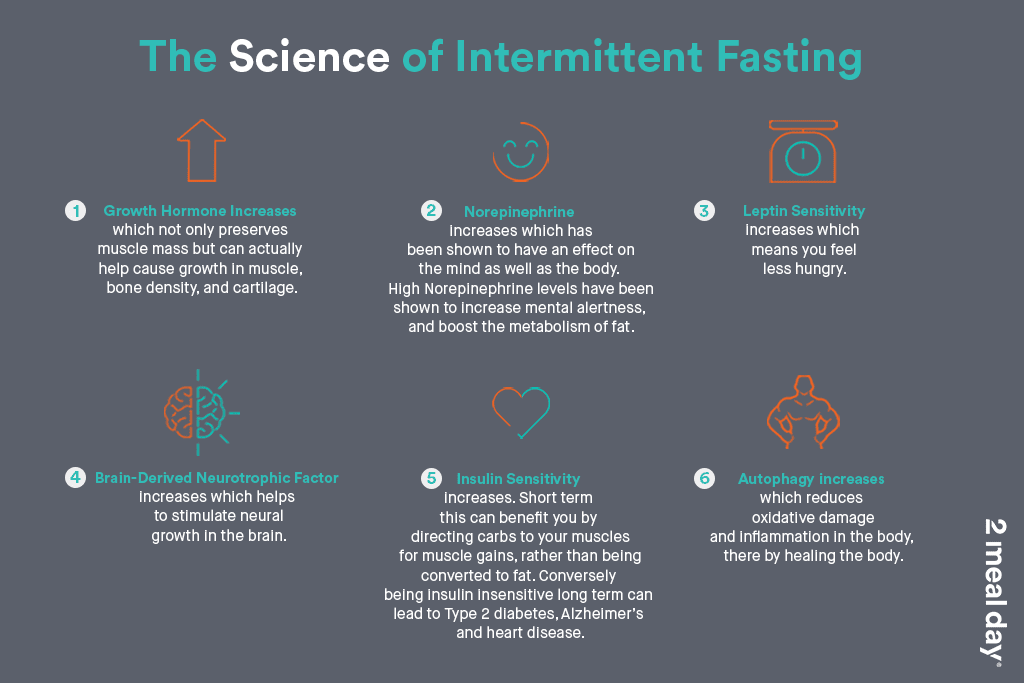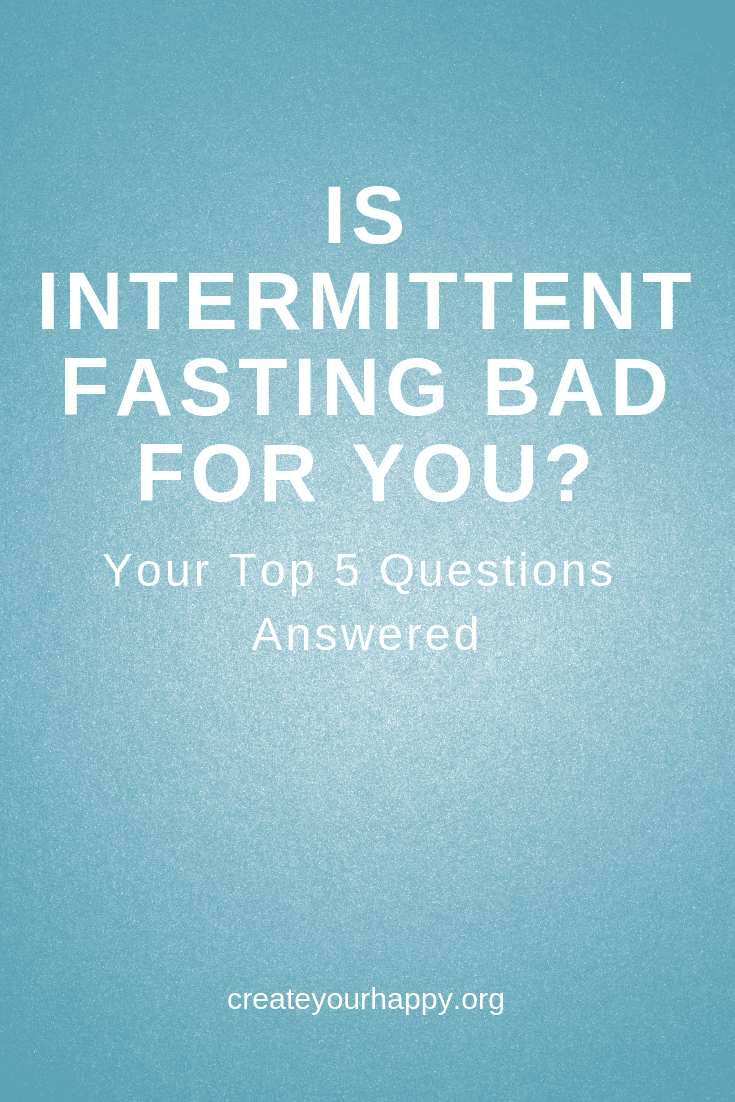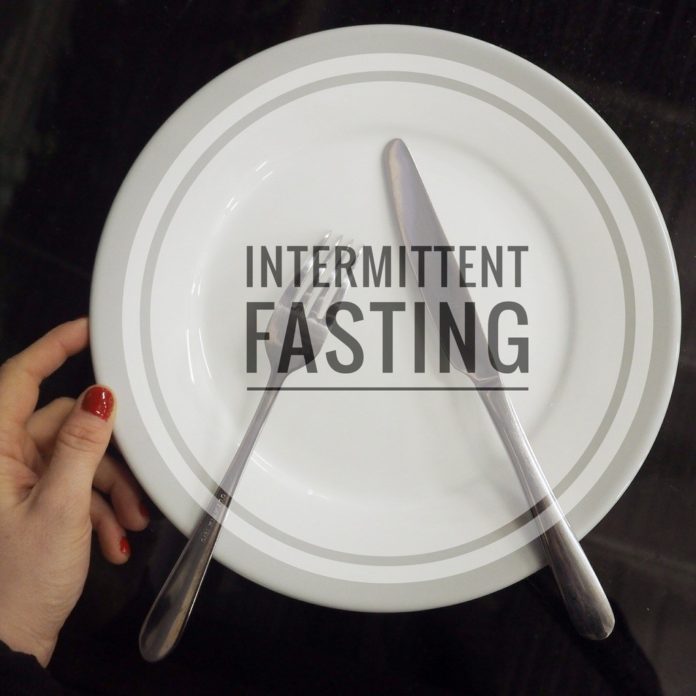Last Updated on September 21, 2018 by Shane Corbitt
Intermittent fasting isn’t some new fad diet. Intermittent fasting has been around since ancient times to improve health and increase stamina.
There are many questions floating around on the internet from people just like you wondering if intermittent fasting is safe and healthy.
Is intermittent fasting bad for you? My answer to this is absolutely no! There are many benefits of intermittent fasting and none of them are bad.
When you mention fasting, your mind automatically envisions not eating or starving yourself for a long period of time. While this is partially true, you are not actually starving your body. You are allowing your body to convert stored fat into energy creating a happier healthier body.
Intermittent fasting has become popular over the past several years which has led to massive amounts of internet searches. People looking for answers to there questions regarding intermittent fasting.
While doing my research into the most commonly asked questions, there were 5 questions that stood out. That’s where I’d like to spend the next few minutes and answer these questions.
What Is The Meaning Of Intermittent Fasting?
Wikipedias definition is “Intermittent fasting, or intermittent calorie restriction, is an umbrella term for various diets that cycle between a period of fasting and non-fasting during a defined period. Intermittent fasting may produce weight loss comparable to long-term calorie restriction.”
Common intermittent fasting methods involve daily 16-hour fasts or fasting for 24 hours, twice per week.
So a basic example of the 16 hour fast would be if you have dinner at 6 p.m. you would then wait 16 hours or until 10 a.m. the next morning before eating your next meal.
A method I generally use is one that I learned from world famous cardiac surgeon Dr. Steven Gundry. I take 2 days every week where I only consume between 500 – 750 calories. My food intake on these days consists of drinking four green smoothies. Each of these smoothies are only 180 calories each.
While Dr. Gundry has a few different methods of intermittent fasting, you need to determine which method works best for you.
What Does Intermittent Fasting Do?
To understand this you first must understand how the body functions when you are not fasting.
On our non-fasting days, when we eat, more food energy is ingested than can immediately be used. Since some of this energy can’t be used it must be stored away for later use.
This is where your bodies hormone, insulin, comes into play. Insulin is the key hormone involved in the storage of food energy.
Insulin gets released in your bloodstream when you eat by the presence of sugars. These sugars, also known as glucose, are used for energy with the excess being stored in two separate ways. The excess energy is converted and stored as either glycogen or fat.
Glycogen is stored in the liver where it’s easily accessible. The liver unfortunately has limited storage so once its at capacity the available excess glucose is then stored as fat throughout your body.
Now your bodies preferred source of energy is glucose. So when you intermittent fast your body uses up the stored glycogen in the liver, which doesn’t take very long, than it begins breaking down fat to be converted over into energy.
This process helps keep your body lean and in optimal health.

What Are The Benefits of Intermittent Fasting?
While the main reason most people do intermittent fasting is to lose weight, there are many other health benefits.
- Improved fat burning
- Improved mental clarity and concentration
- Decreased glucose and insulin levels
- Increased energy
- Reversal and prevention of type 2 diabetes
- Increased growth hormone levels
- Lowers your blood cholesterol levels
- Reduction of inflammation
- Potential prevention of Alzheimer’s
- Improve your overall wellbeing
As you can see from the list above there are many benefits of intermittent fasting. I can attest to this as I have witnessed, first hand, these benefits.
I’ve gone from 245 lbs to a healthy 185 lbs in 10 months, my energy level has skyrocketed and my mental clarity has greatly improved. It’s a continuous process as your body adapts to the new changes. As I’m getting close to my weight loss goal my biggest challenge now is adjusting the process so I don’t plateau.
Intermittent fasting and Exercise Timing?
I prefer and always recommend exercising in the morning. I prefer the mornings because its part of my morning routine and it helps jumpstart my day.
In regard to intermittent fasting, there really isn’t an optimal time to exercise. This is where it will take some trial and error in getting to know your body and when you feel at your best during the day.
What Can I Drink During Intermittent Fasting?
The most important thing to remember here is, be sure and check the nutritional facts of what you’re drinking. You want to make sure that you’re not having and sugars or very little.
So this will limit you to water, unsweetened tea and black coffee. Drinking water regularly throughout the day will help keep you feeling full curbing your appetite.
Takeaway
While intermittent fasting only twice per week can definitely aid in your quest for weight loss. You won’t reap the full health benefits if you’re not adjusting to healthier way of life on the other five days of the week.
The goal here is to live healthier, to live longer and to enjoy life to it’s fullest! So adding in a regular exercise regimen along with healthier habits will only improve your life.
Here is the framework I’ve used to create my perfect morning 5 Amazing Things You Should Include in Your Morning Routines that goes along nicely with my intermittent fasting.










